Campus & Community
-
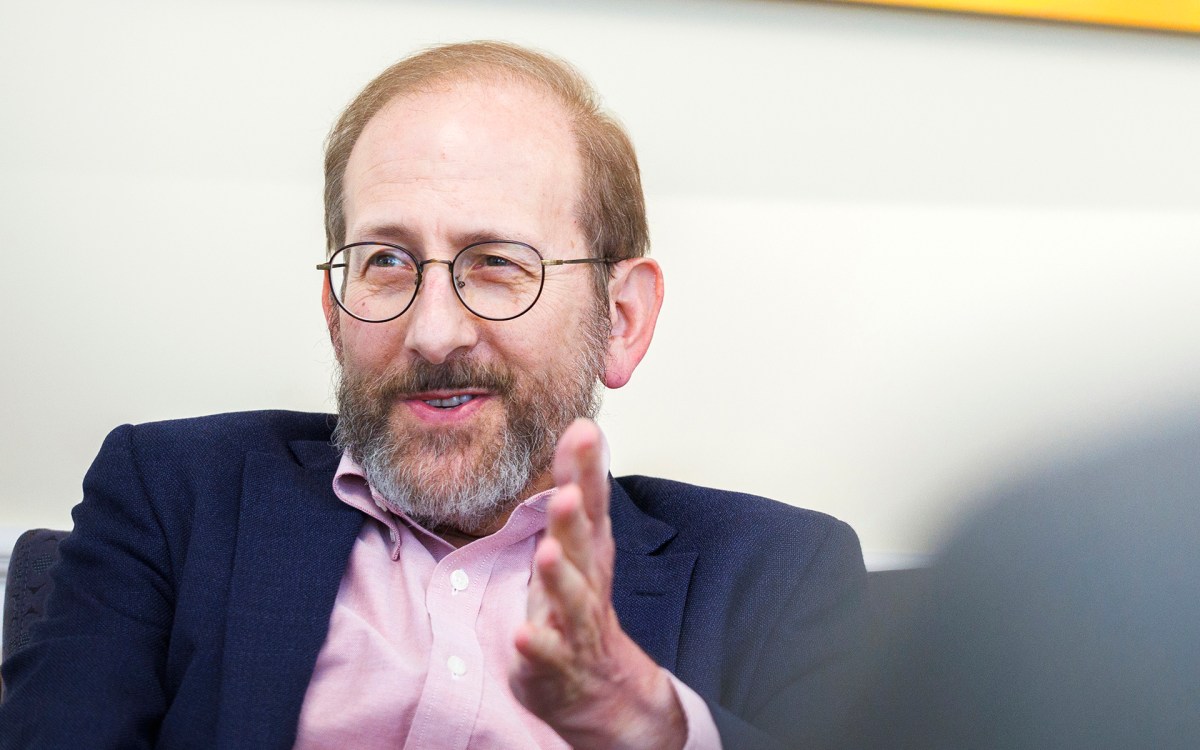
Garber to lead Harvard beyond 2026-27 academic year
‘Our progress has made me prouder than ever to be part of the University — and determined to see us through this uniquely challenging period in our long history.’
-
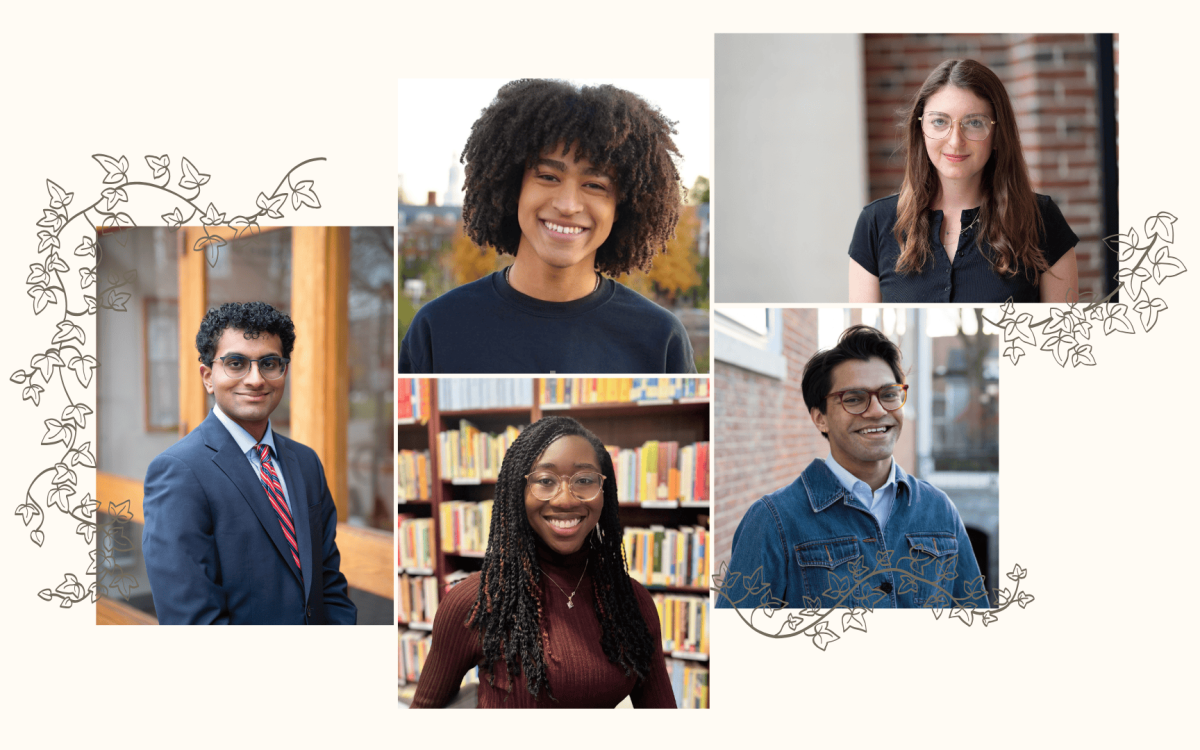
5 from Harvard named Marshall Scholars
Awards for 4 students, 1 alumna — more than any other institution — support graduate studies in the United Kingdom
-
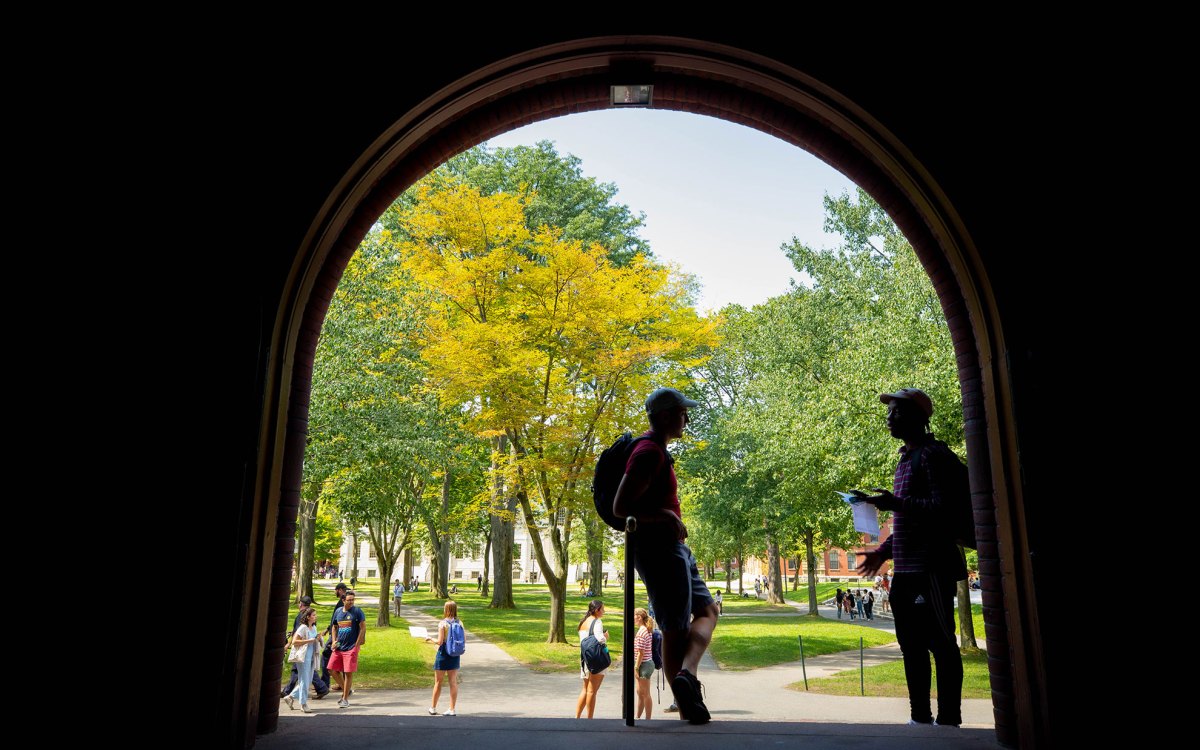
‘Our students are seeking not just to coexist, but to understand’
8 projects win Building Bridges grants to spark constructive dialogue on campus
-
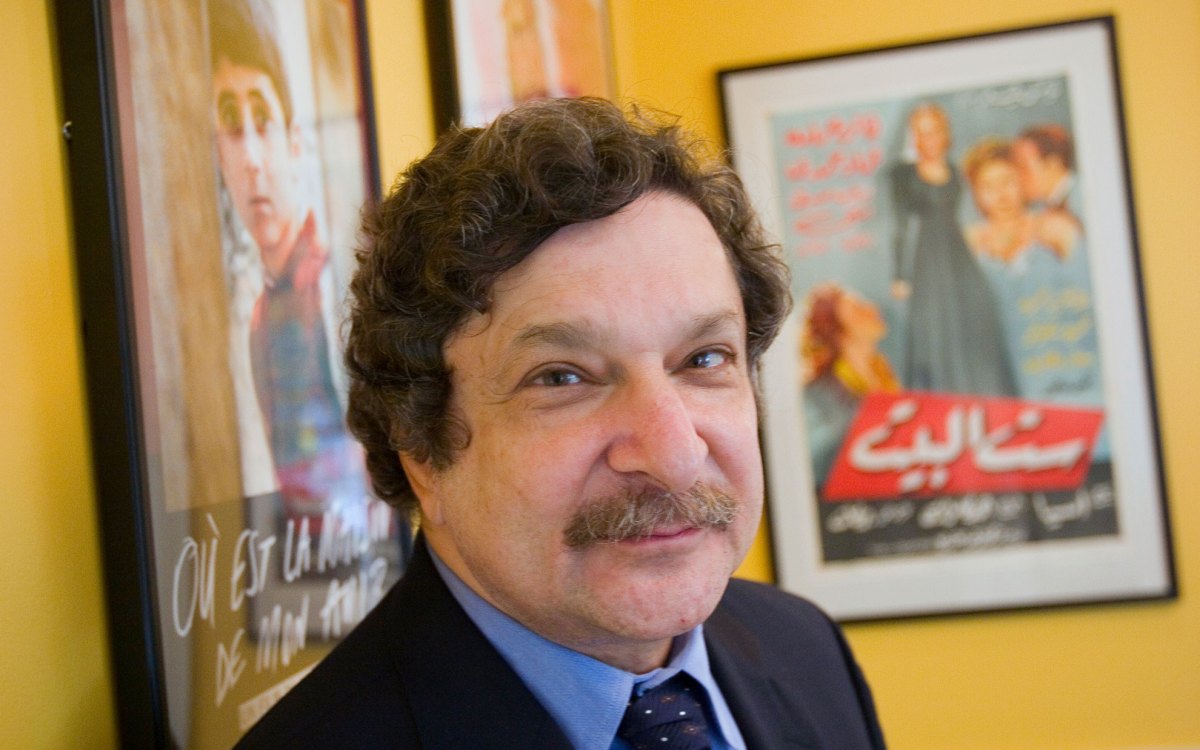
Roy Parviz Mottahedeh, 84
At a meeting of the Faculty of Arts and Sciences on Dec. 2, 2025, the following tribute to the life and service of the late Roy Parviz Mottahedeh was spread upon the permanent records of the Faculty.
-
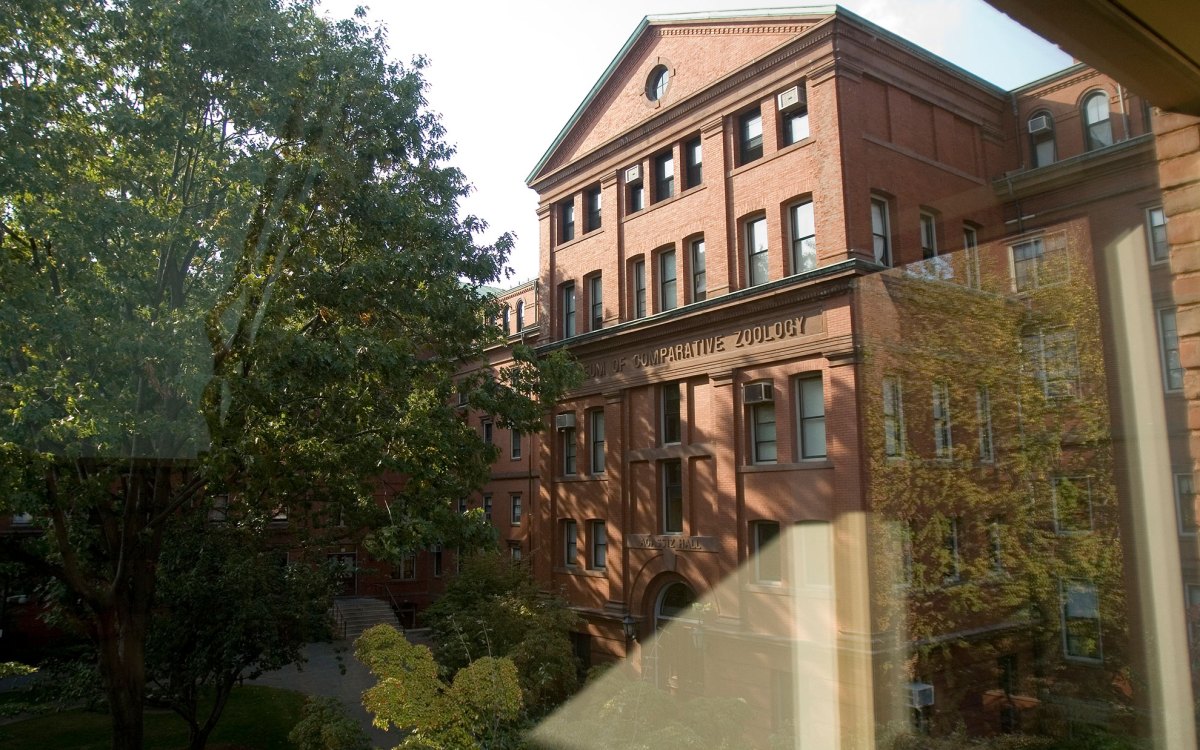
Karel Frederik Liem, 73
At a meeting of the Faculty of Arts and Sciences on Dec. 2, 2025, the following tribute to the life and service of the late Karel Frederik Liem was spread upon the permanent records of the Faculty.
-
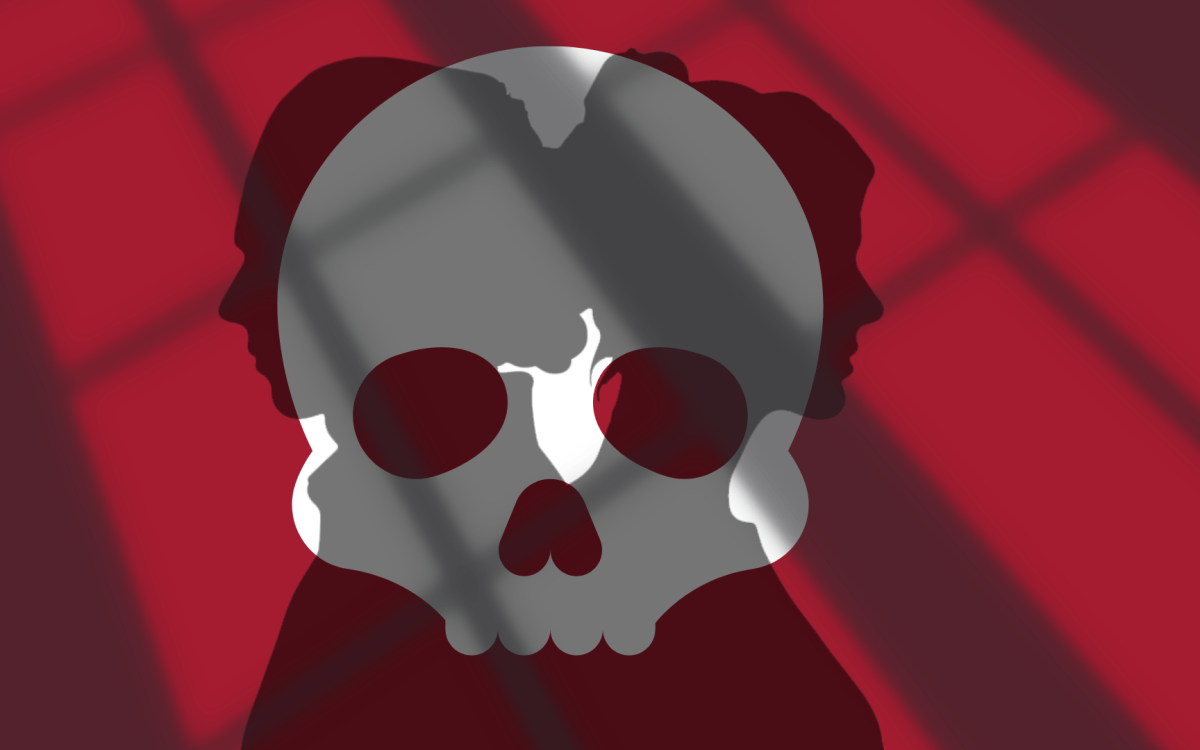
‘Goodnight, sweet prince’
New holiday film reimagines couple’s searing grief over death of young son, how it inspired creation of ‘Hamlet’
-
Formal
Staff photo by Justin Ide Formal Young lovers take a break from dancing during their spring formal to enjoy the view from the Boston Bay Tower.
-
Samantha Power garners National Magazine Award
Samantha Power, lecturer in public policy and outgoing executive director of the Kennedy Schools Carr Center for Human Rights Policy, has been bestowed the National Magazine Award by the American Society of Magazine Editors. The award honors Power and The Atlantic Monthly magazine for her article, Bystanders to Genocide, which appeared in the September issue of the magazine. The article explained the Clinton administrations response to the murder of 800,000 Rwandans in 1994.
-
History-making talk
History was made on May 6 as His Excellency President Stjepan Mesic was the first Croatian president to deliver a public address at Harvard. Mesics subject was Southeast Europe: From War to Stability.
-
Surgery under the knife
Between jolts from his pager and rings from his desk phone, Atul Gawande pulls up X-rays on his computer and confers with his officemate, a fellow resident, about how best to handle a patients internal laceration. They speak in a seemingly cryptic language run over with acronyms and words ending in -tosis and -itis. Its 8:30 p.m. on a Tuesday and patients need beds, tests, and treatments. In the fluorescent light of an office lined with textbooks as big as toaster ovens, there is little of the quietude and serenity that is characteristically associated with a writers life.
-
Harvard president visits People’s Republic of China
Harvard President Lawrence H. Summers began a trip to the People’s Republic of China on May 10 and will visit the country through May 14. During his visit, Summers will deliver an address at Peking University, announce a joint Harvard/Development Research Center/Tsinghua University mid-career program, visit with various government and education officials, and speak with alumni who have gathered from all across Asia.
-
Errata
An article that appeared on page 13 of the May 2 issue (Silbert, Farrell receive activist award at KSG), mistakenly reported the amount of the award as $10,000. The amount is $100,000, to be shared by the two recipients. The winners also received a commemorative sculpture designed by Maya Lin, the creator of the Vietnam War Memorial.
-
Newsmakers
Courtney Bergman qualifies for 2002 NCAAs
-
The road to Himalayas starts at GSE
Ashish Rajpals life journey has followed a meandering path. A native of India, he was launched on an international business career before a passion beckoned him to the Himalayas, then sent him to Harvard, where hes pursuing a masters in education at the Graduate School of Education (GSE) this year.
-
AMD Program accepting applications
The Advanced Management Development (AMD) Program at the Harvard Design School is now accepting applications for its second class. The program is a long-term, high-level, international educational experience for successful real estate executives who want to expand their horizons and prepare to assume larger roles of leadership in their communities and in the industry.
-
Spot of tea might help heart patients
Drinking tea on a regular basis may help protect patients with existing cardiovascular disease, according to a study in the May 7 issue of Circulation: Journal of the American Heart Association, which finds that tea consumption is associated with an increased rate of survival following a heart attack.
-
Summers donates books to four local schools
Un libro te lleva al cualquier sitio que tu quieras: a book takes you wherever you want to go, 9-year-old Gabriel Castro told Harvard President Lawrence H. Summers on Friday (April 26).
-
Quark stars signal unstable universe
Recent evidence for the existence of strange types of stars made from a new form of material raises some questions about the stability of matter in the universe.
-
Commencement notice
Thursday, June 6, 2002
-
Erratum
A photo that appeared on page 12 of the April 25 edition should have identified Alison Vaughan as the executive director of Tutoring Plus of Cambridge. She was incorrectly listed as a tutor. The Gazette regrets the error.
-
Faculty council notice for May 1
At its 14th meeting of the year the Faculty Council considered a proposed merger of the departments of East Asian Languages & Civilizations and Sanskrit & Indian Studies with Professor Peter Bol (chair, E.A.L.C.) and Professor Leonard van der Kuijp (chair, Sanskrit and Indian Studies).
-
This month in Harvard history
May 12, 1638 – By order of the Great and General Court, Newetowne is renamed Cambrige (Cambridge).
-
Police reports
Following are some of the incidents reported to the Harvard University Police Department (HUPD) for the week ending Saturday, April 27. The official log is located at 1033 Massachusetts Ave., sixth floor.
-
President and provost office hours
President Lawrence H. Summers and Provost Steven Hyman will hold office hours for students in their Massachusetts Hall offices from 4 to 5 p.m. Individuals wishing to meet with President Summers or Provost Hyman will be welcomed on a first-come, first-served basis. A Harvard ID is required.
-
Globalization and self-help
With globalization linking their fates, the developed world cannot afford to leave the developing world behind, UN Secretary General Kofi Annan said Wednesday (April 24), urging support for African efforts to help themselves.
-
NAS elects eight from Harvard
President Lawrence H. Summers and seven Harvard professors are among the 72 newly elected members of the National Academy of Sciences, the academy announced Tuesday (April 30). Members are elected in recognition of their distinguished and continuing achievements in original research. Those elected bring the total number of active members to 1,907. With its eight new members, Harvard tied the University of California system for the highest number of electees this year.
-
Newsmakers
Dibner Institute appoints Cavicchi for second year
-
The Big Picture
Youve heard of the Cambridge folk renaissance? Well, Lenny Solomon was there.
-
HAA awards Harvard Medal to four
The Harvard Alumni Association (HAA) has announced the recipients of the 2002 Harvard Medal: Peter A. Brooke 52, M.B.A. 54, Sharon Elliott Gagnon, A.M. 65, Ph.D. 72, John A. Lithgow 67 and Daniel C. Tosteson 46, M.D. 48. First given in 1981, the Harvard Medal recognizes extraordinary service to the University. President Lawrence H. Summers will present the medals during the Annual Meeting of the Harvard Alumni Association on the afternoon of Commencement, Thursday (June 6).
-
Three seniors receive Peabody Traveling Fellowship
Harvard seniors Erica Levy, Christopher Papagianis, and Marc Wallenstein have been awarded the George Peabody Gardner Traveling Fellowship for 2002. The fellowship, available to graduating seniors who are concentrators (or joint concentrators) in the Departments of Visual and Environmental Studies, Anthropology, English, History and Literature, Literature, or Philosophy, is awarded to students who demonstrate a curiosity about the history and customs of cultures other than their own. The award includes a stipend for a year of travel and study.
-
Baseball pours it on
Up until the month of showers, success for the Harvard baseball team appeared to be postponed indefinitely. The Crimson notched just three victories in 14 outings during their opening month of play, dropping their first six games of the season. Yet ever since a doubleheader sweep over reigning Ivy champion Princeton in early April, Harvard has continued to pour it on, winning 12 out of their last 22 games, while improving to 15-21 overall (11-5 Ivy).
-
FEMA officials recount agency’s role in Sept. 11
The events of Sept. 11 have changed the way America responds to disasters, Daniel A. Craig, regional director (Region One) of the Federal Emergency Management Agency (FEMA), told a Harvard audience last month. FEMA needs to lead the charge in implementing these changes.
-
Nieman Foundation administers first Taylor Award
An article by Les Gura of the Hartford Courant about an instructor at Yale University who became the focus of stories that unfairly cast him as a murder suspect, is the inaugural winner of the Taylor Family Award for Fairness in Newspapers. The award, endowed by the former publisher of The Boston Globe and the Taylor family, and administered by the Nieman Foundation for Journalism, carries a $10,000 prize.
-
‘Social entrepreneurs’ garner prize
Harvard Business School (HBS) students Matthew Mugo Fields 02 and Lucas Klein 02 and their business partner Jason Green like to begin their business plan presentations with a question: How does the U.S. Government forecast prison growth?
-
-
François Bovon named Luce Fellow in Theology
The Association of Theological Schools (ATS) in the United States and Canada and the Henry Luce Foundation, Inc., have named François Bovon as a Henry Luce III Fellow in Theology for 2002-03. Bovon, the Frothingham Professor of the History of Religion at the Divinity School, was named a fellow in the category of Bible and the Church, and will write on the topic of The New Testament and Early Christian Apocrypha.


